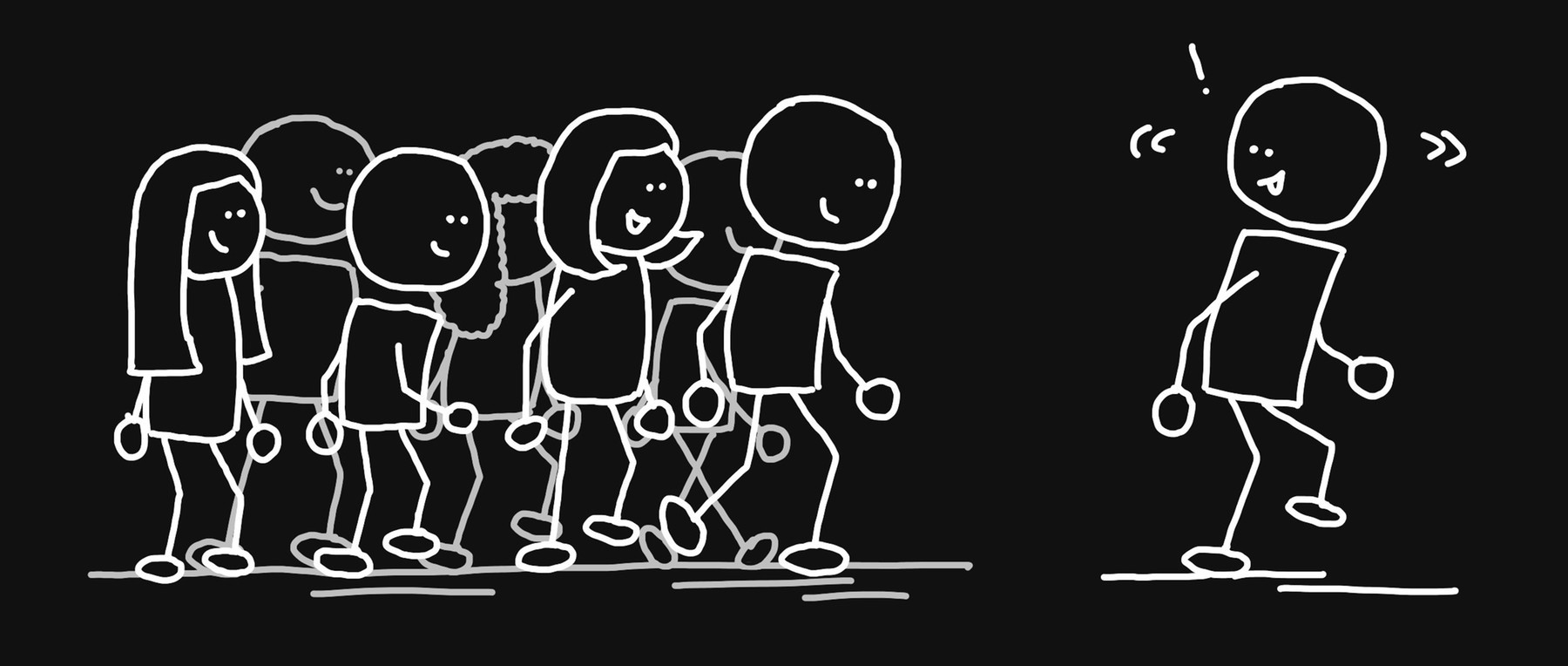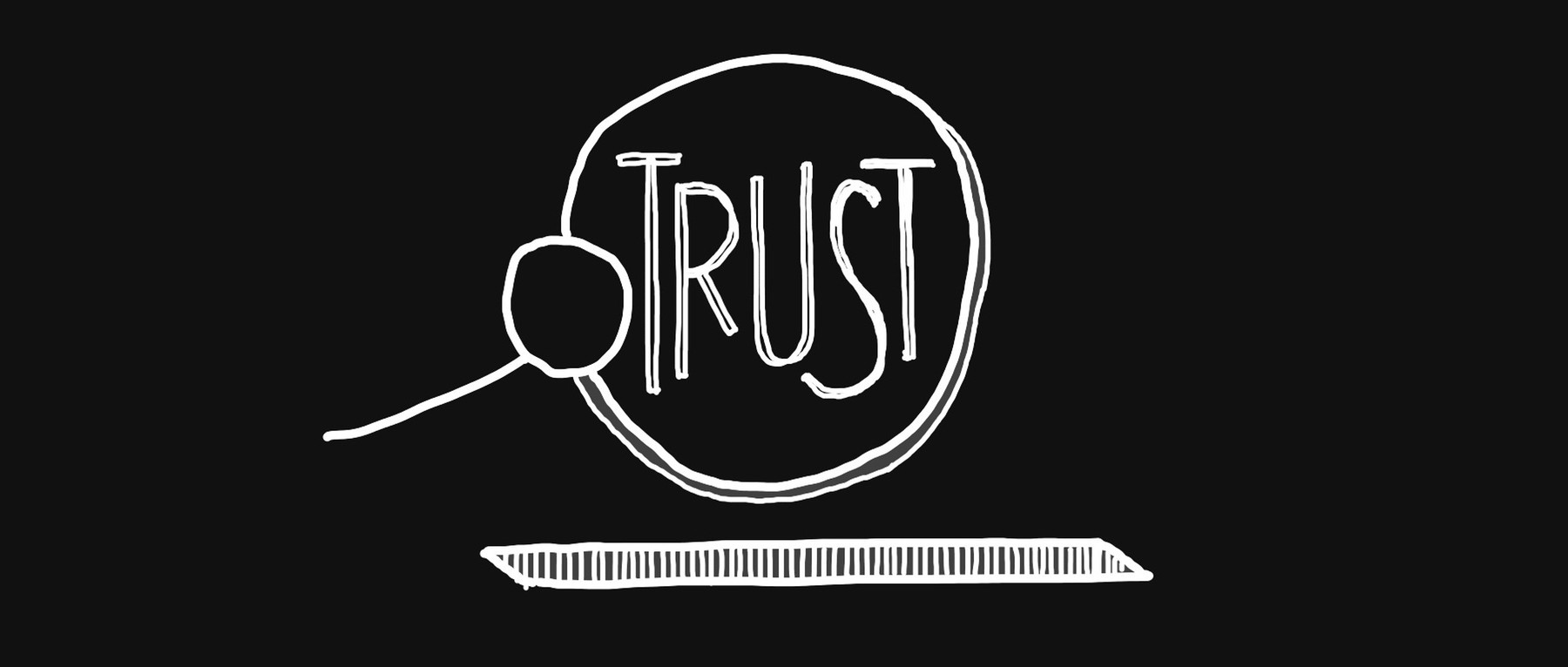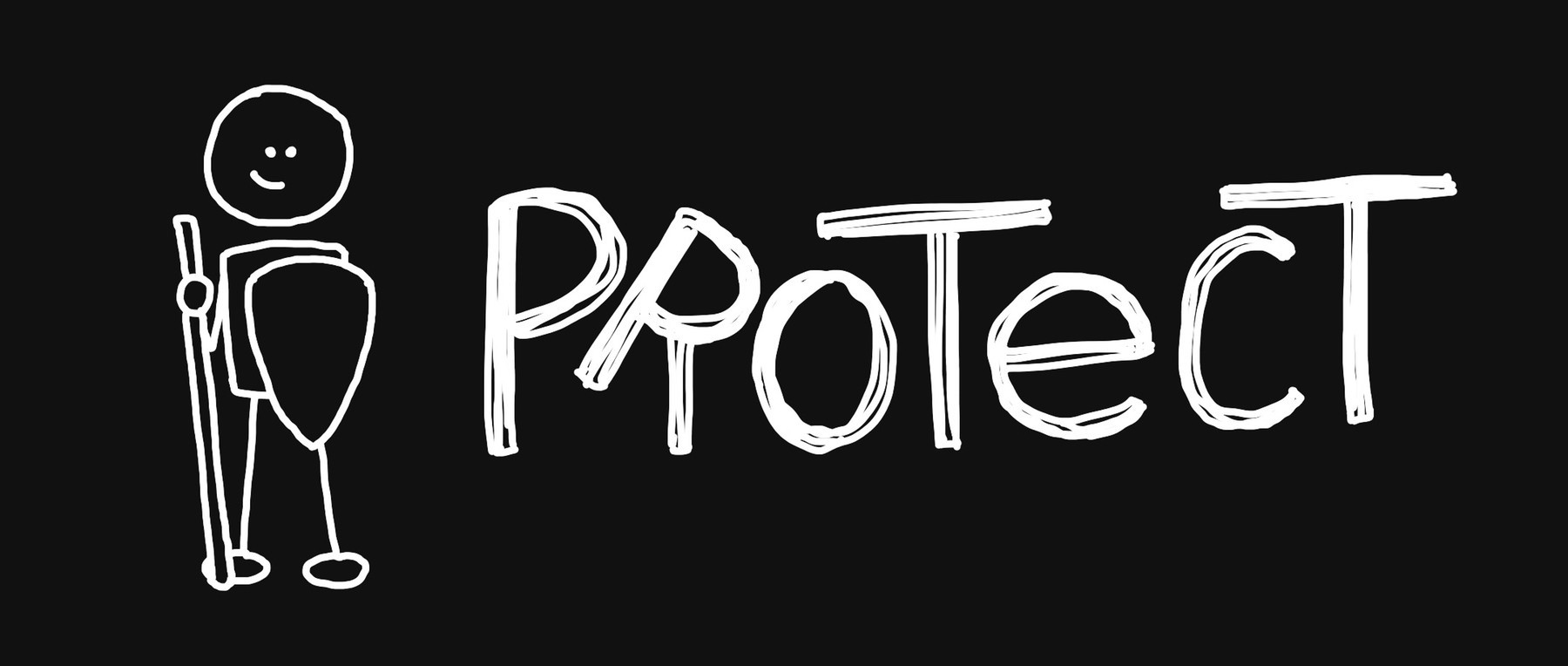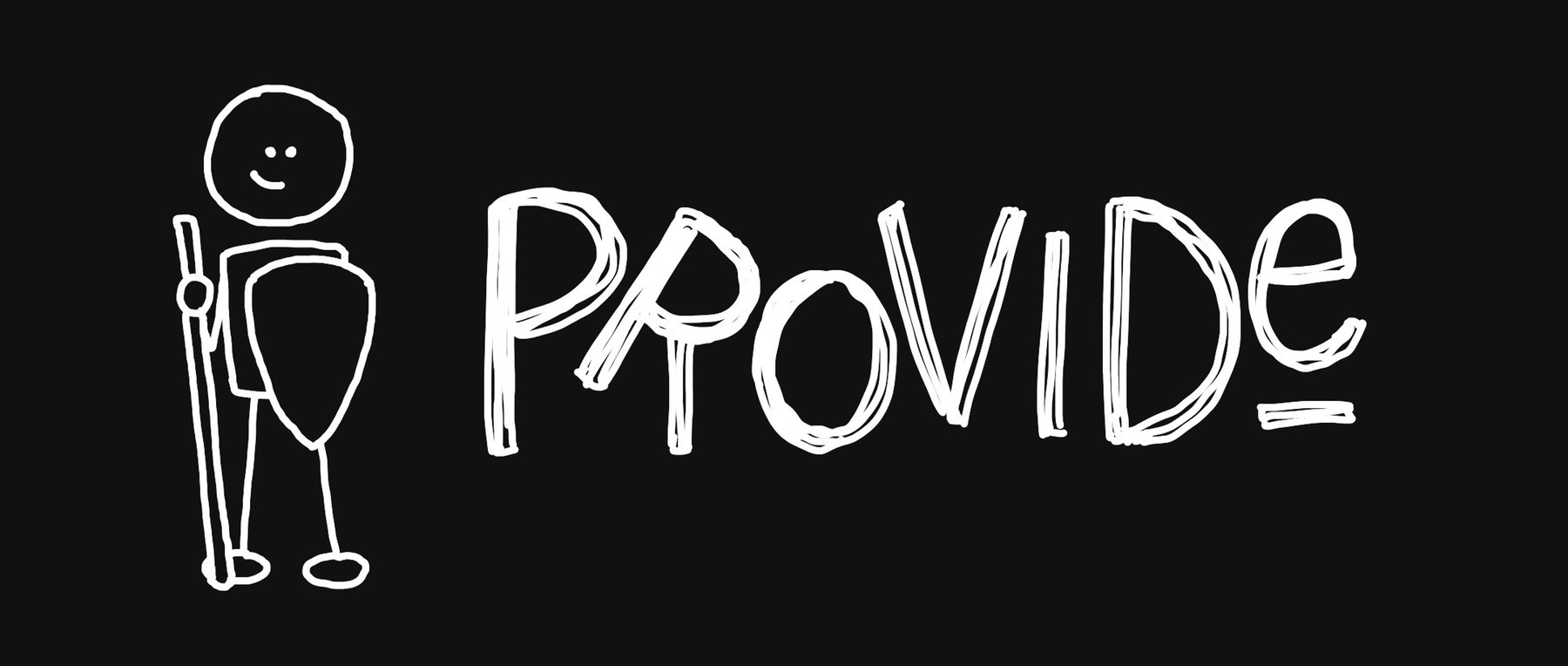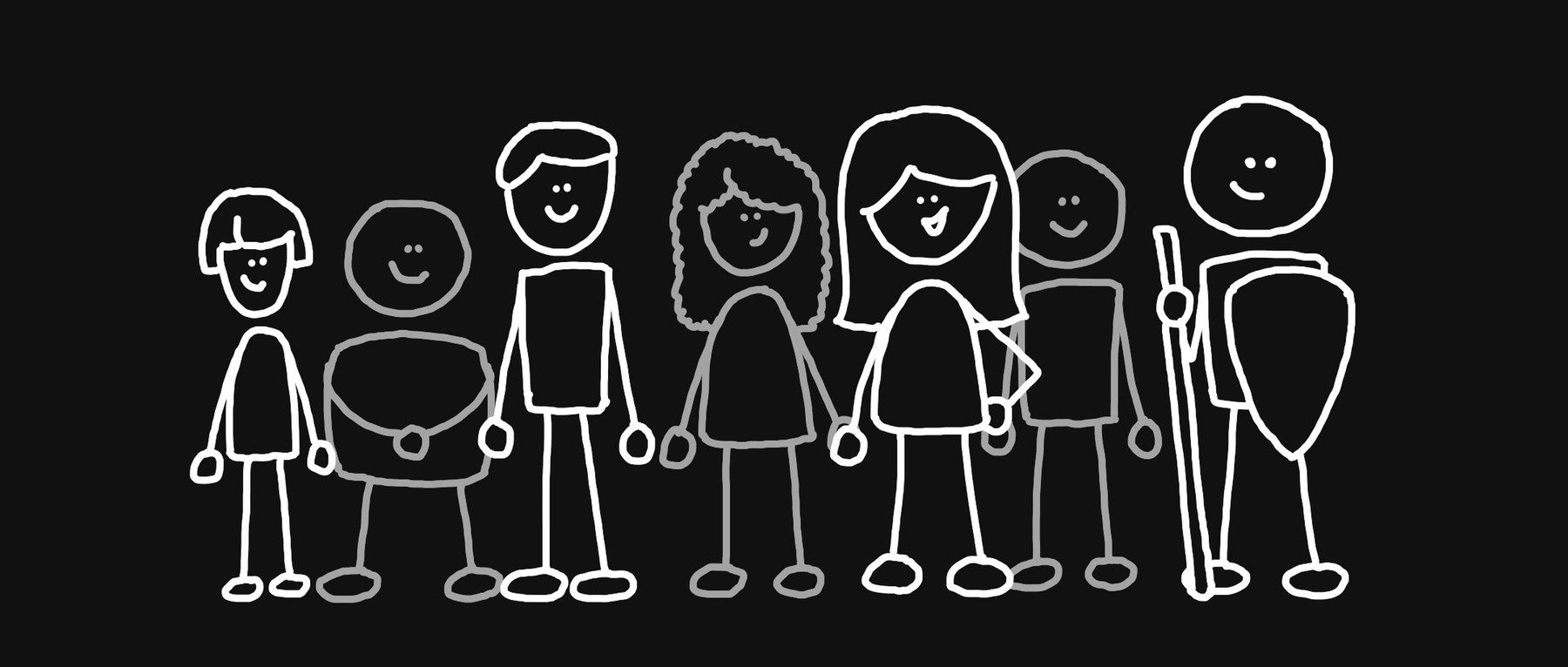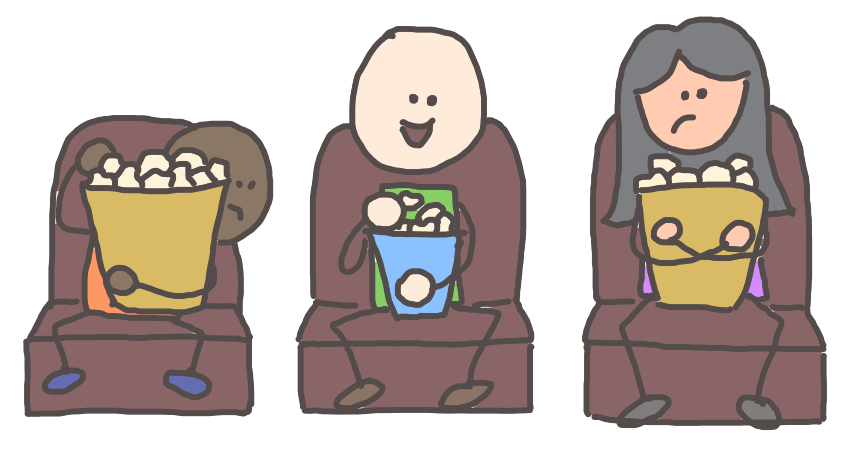🛡 Remote work thoughts
My manager asked us to write up our thoughts on remote work, as we have all experienced a form of it in this pandemic. I decided I wanted to share my thoughts more broadly. With some edits for a more general audience, the text below is what I sent out.
I have worked remotely either full-time or part-time for the last eight years. Prior to O.C. Tanner, I worked for Balsamiq, a software company based out of Italy, which was entirely remote. I have strong feelings about this topic and the implications it has.
tl;dr
Supporting remote work well requires and demonstrates high trust and is one of the best ways to recognize and treat employees respectfully as people. We should allow it.
Executive summary
We need to take this moment to thoughtfully consider how we can work best. Remote work is not the only answer; it is a compelling option that fits large parts of our company well, both in terms of our people and the work they do.
Colocated work has many benefits, and also serious challenges. Those challenges include defaulting to synchronous communication, selfish demands of immediate answers, reducing people to objects, cheapening in-person interactions, and providing an illusion of control or involvement.
Remote work encourages and facilitates many of the most important aspects of successful work. Those include respecting people as people, valuing and protecting the time and attention of others, communicating asynchronously most of the time and moving to synchronous when needed, and making important information and knowledge easily accessible.
The daily emails coauthored by our C.E.O. and HR leader throughout the pandemic are a fantastic example of connecting people asynchronously. They could be even better if not locked in our emails, but published in a company-accessible space, such as Confluence or Basecamp.
My hope is that we would institute a company policy of allowed remote work for designated departments, and in I.T. at least two days a week where everyone who is able is encouraged to work from home.
Full thoughts
Requirements for remote work
Remote work is not a good solution for everyone. To be a good fit depends mostly on personality and slightly on style and type of work. In order for someone to be well-suited for remote work, it is often ideal for them to possess the following characteristics:
- Honest and mature—able to work effectively without direct supervision
- Intrinsically motivated
- Capable of independent thought and work
- Not completely dependent on work for social interaction
- Disciplined and able to stop working when needed
Often, people get concerned that employees who work from home will shirk work and spend more time watching TV or attending to personal matters or taking naps. In most cases, the real problem with employees' work/life balance is that work encroaches on all other areas of life which leads to burnout. Generally, if leaders cannot trust their people to work, it does not matter where they are doing that work. If that is a concern of ours, I think it is a much bigger issue.
Often the best fit for style and type of work include some or all of the following:
- Creativity or problem solving
- Deep thought and consideration
- Individual contribution
- Occasional collaboration
- Information sharing or data transfer
Problems with colocated work
Not everything about colocated work is bad—there are many positives, and many benefits that come from this kind of work better than in any other way. As humans, we are designed to be social creatures, and processing the rich input stream of emotional and nonverbal communication that comes from being in person with someone is huge.
However, in a professional sense, there are many potential challenges. One of the first is that being physically close establishes a default of synchronous communication. This encourages shoulder-tapping, and fosters a culture of ASAP, where people become accustomed to getting answers immediately. At first glance, this may appear to be positive—we can seem to be more efficient, and in some cases, we truly are in the short-term. The insidious truth about this environment is that it is inherently selfish. Instead of seeing others as people, we see them as objects that exist to provide us with information or to get us unstuck when we feel the need. Instead of sitting in our own discomfort of not knowing something immediately, or searching it out ourselves, or just waiting until it is convenient and productive for the other person to respond, we place our own needs above theirs. This can lead to an almost unconscious perspective of viewing others as objects instead of people.
Another major problem with primarily colocated work is the cheapening of in-person interactions. I think many of us have noticed the inverse of this through our experience with the current pandemic. Because we have been isolated, those instances where we are able to be in person with someone are truly valued. Many people experience this as well when living away from family or friends—we often see loved ones less, but value the experience more. When I worked for a fully-remote company, we found this to be extremely true. We had an annual company retreat where we all gathered together for a week and a half, and would have mini retreats once or twice a years as smaller teams. Those times were special to build and strengthen relationships and create memories, and greatly enhanced our ability to work remote effectively.
The final problem with colocated work that I have seen is the illusion of control or involvement. For much of human history, there has been something seductive about being able to see people in order to know that they were behaving as we expected. In the workplace, we can, sometimes unconsciously, associate someone being at their desk as them working or being productive. This is a horrible measure of productivity. Again, it reduces people to objects, and tells them that their worth to the company is not the value they provide, but the hours they spend in a certain location. When this illusion is removed, it requires leaders to step up and discern how to measure the value that employees provide, both to track their productivity, and to help them grow as individuals.
How successful remote work looks
In my experience, when everyone is colocated, we think less about how successful work looks, but when we consider remote work, it becomes top of mind. I think we should take advantage of the situation we are in to consider how we could be more successful in general. I want to share my opinions on how successful work looks. It so happens that working remotely encourages these behaviors and characteristics.
The first and most important point is that people are respected as people, and their time and attention is valued and carefully protected. We all recognize and appreciate the value that each person provides, and take the time to learn how others work, and how we can best interact with them to respect and empower them. In practice, this often looks like waiting more often. Instead of demanding that people stop what they are doing in order to deal with us and our needs, we carefully consider first whether we actually need to interrupt them. If we determine that it is necessary, we do so in a way that allows the person to continue what they are doing, and respond when it is convenient for them. Inversely, we respect the requests from other people, and respond as quickly as appropriate. If we are in a position or a role where we need to provide more time-sensitive information, we respect others by checking more regularly to see if there are requests to which we need to respond.
A related principle is that we communicate asynchronously most of the time, and move to synchronous when needed. There are situations, such as debates, or final decisions, that can be done more effectively and efficiently in a synchronous manner. Those are often best facilitated by prior asynchronous communication, where everyone involved was able to consume and process the relevant information on their own time, and were able to take the time to dive as deep as needed in order to understand it sufficiently to make a sound decision. In many cases, I have seen that the act of taking time to write out your thoughts on an issue helps to crystallize and distill those thoughts. All of this leads to better thought and better decisions.
That leads to my final point, which is that information needs to be recorded in a way that is easily findable. Often, this means in some kind of shared location that is organized well so that it is easily browsable and searchable. When conversations, or worse decisions, are scattered across many different mediums, or trapped in email or verbal conversations, we drastically reduce access to that information. This decision, whether made consciously or unconsciously, prevents transparency and excludes people. Those affected include current employees who are not involved, and especially all future employees. Making this wealth of knowledge and information available is another form of respect.
Conclusion
We will rarely have the opportunity that has been forced on us by this pandemic to re-evaluate the basic ways in which we operate and work together. It would be a tragedy if we did not leverage what we have seen and learned through this experience. One point that has been made repeatedly is that many parts of the company have actually become more productive during this time. I think it is easy for us to gloss over the significance of that fact. Our lives have been severely disrupted. The level of uncertainty we have all experienced is unprecedented in most of our lifetimes. We have not actually been working remotely—we have been surviving a crisis, and forced to cope in whatever way we can. For some people to have become more productive during this time speaks volumes to the potential of remote work, especially if it is approached thoughtfully and done deliberately. Not everyone will choose to work remotely, and I think it would be a mistake to force them to do so. It is not the best fit for everyone. But neither is colocated work. We should respect our people enough to be flexible and open to the way in which they can best work.
To succeed in working remotely, our leaders will have to step up. One of the most beautiful examples of that throughout this pandemic is the daily emails coauthored by our C.E.O. and HR leader. I have heard from so many people who have been encouraged and uplifted and have felt more connected to each other and to the company through those message. In some ways, it is sad that it took a crisis like this for us to start reaching out to the whole company in that way. It also seems unfair to me that one or two people seem to have carried so much of that burden. My one wish is that those touching messages were not trapped inside email. How helpful and inspiring it would be to have all of those messages preserved somewhere like Confluence or Basecamp where everyone could still be notified of them, but have them archived and available for reference and future employees. (Note: I realized nothing was stopping me from doing exactly that, so I have copied and pasted the emails in a Confluence page).
I strongly hope that we will take this opportunity to consider how best to work. I would love to be involved in exploring what that could look like, and thrilled to share my experience working remotely.
Recommendation
Based on all that we have seen, I suggest that we institute a policy of allowed work for designated departments. There are obviously some groups, such as Manufacturing, Security, Maintenance, and others who cannot work remotely. But for those groups who can, such as Client Success, Marketing, I.T., and others, I think we should just give everyone in those departments full permission to work remotely if they want. Individuals teams will naturally establish norms of communication and schedules of synchronous time, including in person if needed. We should demonstrate to those people, and to the company that we trust them. If there are problems, those should be dealt with individually, and others should not have their flexibility curtailed as punishment.
Further, in I.T. we have seen that synchronous communication when remote is most effective when most people are in the same situation. I think that we should encourage everyone who can in I.T. to work remotely on designated days, such as Tuesday and Thursday. It would be even better to designate one of those days as a no-meeting day and work to truly protect the quiet work time that is needed for I.T. success.
